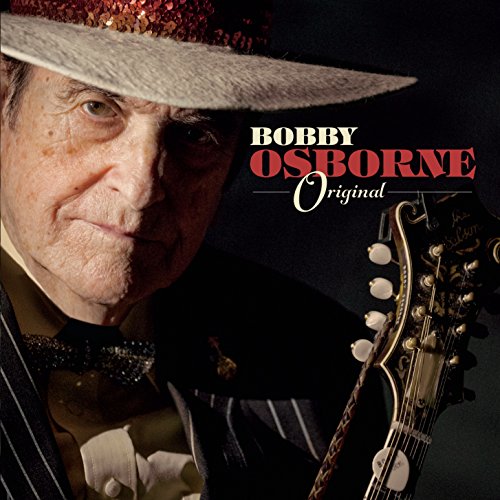|
Bobby Osborne, Original (Compass, 2017) Few singers, even the most distinguished of them, retain impressive vocal powers into their 85th year. Bobby Osborne, also known as a mandolin master, is among that small, select number, sounding as good as, or better than, many bluegrass singers half his age. That Original is as satisfying as it turns out to be testifies to sturdy biology, of course, but also to the lessons of a long historical journey which began in 1956, when he and banjo-playing sibling Sonny founded the Osborne Brothers. Since Sonny's retirement in 2005, Bobby has soldiered on with his Rocky Top X-Press, cutting discs for Rounder and Rural Rhythm (see my review in this space of New Bluegrass & Old Heartaches on 1 September 2012).
Another, the opening cut yet, is a show tune, Alan Jay Lerner & Frederick Loewe's "They Call the Wind Maria" (from their 1951 Western musical Paint Your Wagon). There's a song that will never show up anywhere near any list of numbers I want floating through my ear space. The lyrics, commencing with the title, are almost shockingly dopey. Yet Osborne is such a pro that he renders them tolerable simply -- or maybe not so simply -- by his straightforward bluegrass-vocal treatment, which somehow gives the tune a heft it should have no claim to. I am unsettled to report that owing to Osborne's genius I can listen to the tune with something approximating enjoyment. The other eight cuts are less likely to raise eyebrows or to prepare the listener (even if unfairly) for the worst. They're well-crafted numbers perfectly suited to Osborne's special gift. That includes Otis Blackwell's "Don't Be Cruel," long associated with early Elvis. Osborne doesn't rock it out, just approaches it with unruffled confidence and no effort to draw attention to its history. Though he might have communicated the point that bluegrass is to country what rockabilly is to rock, he resists the temptation, if temptation it ever was. "Cruel" is just a song he likes, and when you hear it, you'll like it the way he likes it. Who needs more than that? Osborne invented the so-called high lead in bluegrass-trio harmony singing. That means his tenor is at the top, not in the middle, and the other voices roll under his. He started doing that in 1957, but you'd swear that approach, influential as it's been, had been always around, just part of the air. Alone or with Sonny, Bobby Osborne remains a marvel of American roots music. Original is, yes, pretty good for an old man at the twilight of a fairly astonishing career, but it would be praiseworthy for an artist of any age. Alison Brown and her astutely selected guest pickers certainly help here, but in the end it's Osborne who carries the show. 
|
 Rambles.NET music review by Jerome Clark 6 May 2017 Agree? Disagree? Send us your opinions!  



 |

